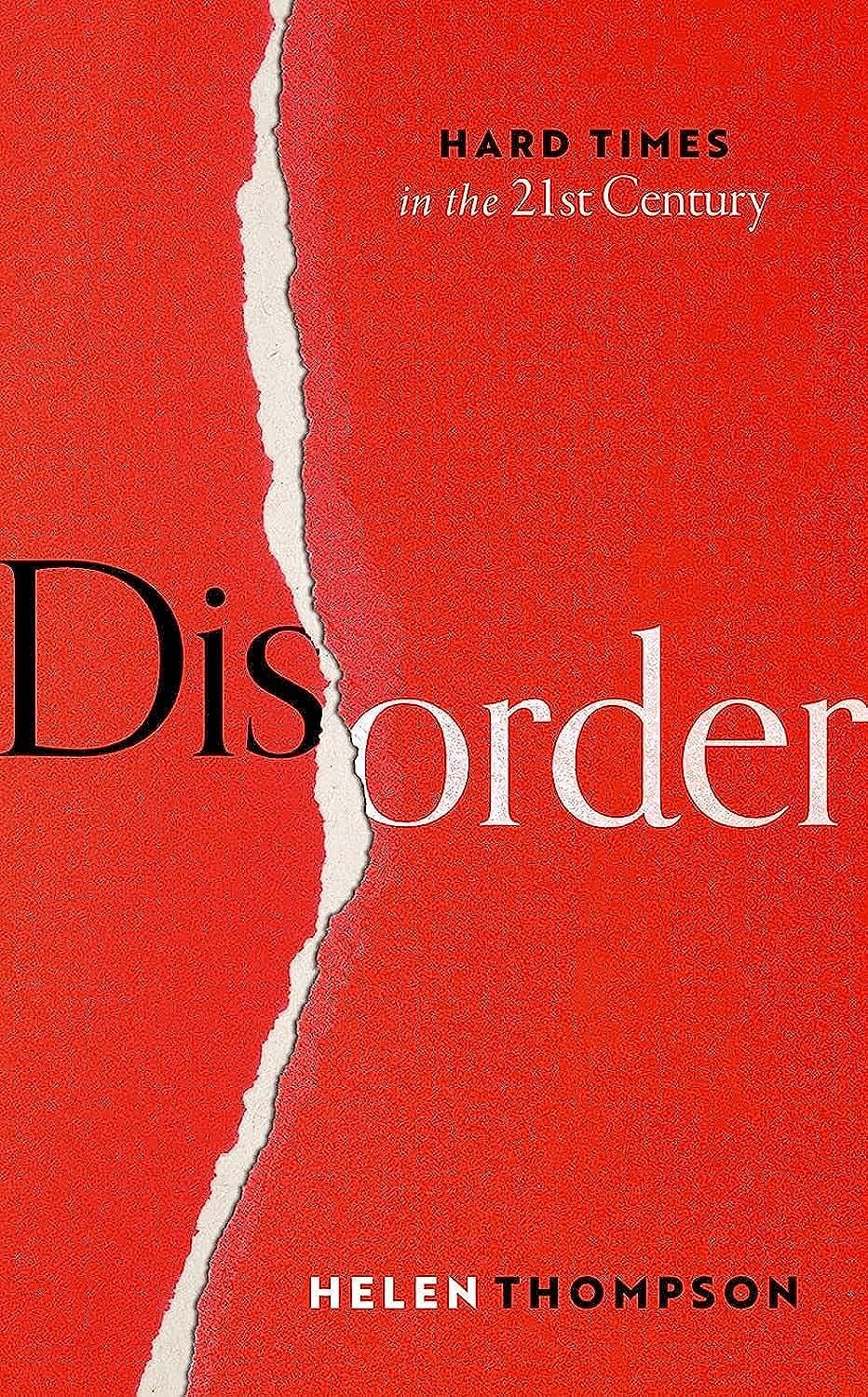
Disorder: Hard Times in the 21st Century
FREE Shipping
Disorder: Hard Times in the 21st Century
- Brand: Unbranded

Description
For Thompson, the central problem was that the ECB, the Bank of England, and the Swiss National Bank had insufficient dollar reserves they could use to support their banks if U. Around the same time, the Ba’athist government in Iraq nationalised the Iraq Petroleum Company, and the Saudi Government took majority ownership of Aramco. Losers’ consent in the United States, for instance, was sorely tested in both the 2016 and 2020 presidential elections. At a time when domestic politics is mainly about expensive wallpaper, it is good to be reminded that there are bigger issues at stake.
Disorder : Hard Times in the 21st Century - Google Books
The first is that energy supplies tend to be added to the world supply without others being taken away. Here, she relates the changing political landscape in Europe, in particular, to developments in the energy market and the impact of the financial and Eurozone crises on political parties. If we want a comprehensive explanation for the last decade’s disruptions, Thompson asserts, we need to examine the large-scale societal shifts—such as how the world produces and consumes energy—that are causing the international political system to be recast. This divergence in rates between Eurodollars and US dollars sparked a borrowing crisis; the subprime crisis in the US was insufficiently large to be solely responsible for this financial crash. It shows how much of this turbulence originated in problems generated by fossil-fuel energies, and it explains why as the green transition takes place thelong-standing predicaments energy invariably shapes will remain in place.In several respects, it was 2005 that was the year that the world in which we now live first took shape. Although a relatively short book at 279 pages (with 68 pages of references and notes), it is heavily dense and, being dry in tone and rather complex, one that is not easy to read. But it also forced some cooperation with the Soviet Union on energy projects, including gas production projects in Siberia, which meant arms control treaties with the Soviets. Thompson warns the reader at the outset that she aims to privilege ‘the schematic over forensic detail’.
Disorder: Hard Times in the 21st Century by Helen Thompson
Making matters more complicated is Western Europe’s dependence on Russia for gas and the strategic role that Ukraine plays as an intermediary between the two. But the US was also pursuing energy independence, with President Nixon telling Americans during a national address in November 1973 that the country needed to wean itself off Middle Eastern oil, partly through exploiting shale oil. Her conclusion is decisive: “As oil became both essential for daily life and dependent on international capital markets, Western governments grew more focused on the consent of plutocrats than their own citizens. Mr Macron, promising Eurozone reform like his presidential predecessors, has also been unable to persuade the Germans.Each of these junctures marked a significant turning point, without which the present, geopolitical, economic, and democratic political world would be recognizably different.
Disorder: Hard Times in the 21st Century - Goodreads
Britain, however, through the Anglo-Persian Company, retained control of the extent to which American firms could operate within the old Ottoman Empire territories. American military involvement in the Middle East was still limited, constrained by a lack of domestic support, even as British power in the region dwindled.Still, as Professor Thompson details, countries have been struggling to find a stable alternative sense of nationhood, and without this shared and binding something, democracy becomes rocky, as anyone looking at the past decade can observe. Separately, relative German economic weakness in the late 1990s and early 2000s meant that the euro’s early years were fairly conflict-free. For her, the central bank could never end the financial panics of 2010 to 2012 unless Europeans first gave up democratic control over taxes, spending, and labor market regulations. Within the European Union, Professor Thompson identifies a different strand of democratic instability brought about by aristocratic excess, in large part the result of the circumstances of the creation and development of the Eurozone. And although the first and third sections are well written and worth reading on their own for their many insights, the weaknesses of the central “economy” chapters raise serious questions about the entire project.
- Fruugo ID: 258392218-563234582
- EAN: 764486781913
-
Sold by: Fruugo
